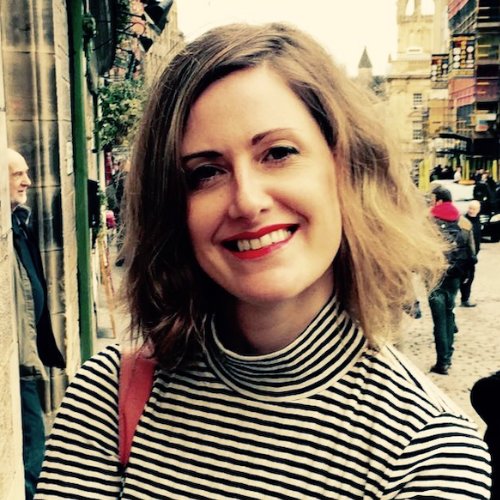You are a feminist media, literary and Italian cultural studies scholar with expertise in gender and feminism. Can you tell us about your work? What drives your passion for it?
I was very aware of social injustice - in particular gender inequality - from an early age. I grew up in a working-class town in the Midlands where my parents were politically active. As a teenager I was deeply inspired by reading authors who had an impact on feminist thinking like Sylvia Plath, Margaret Atwood, and John Berger, and as an undergraduate I became interested in the figure of the Italian tragic opera heroine, who features strongly in my latest book on female spectatorships Gender, Writing, Spectatorships (Routledge, 2022).
The idea for this grew out of my first book Italian Women Writers (Toronto, 2014), which looked at the journalism and domestic fiction of three of the most celebrated women writers in unified Italy, and how they covertly engaged with a moderate feminist ideology during the first wave. I’m currently working on a project on the first female screenwriter in Italy: the Neapolitan writer and journalist Matilde Serao.
What drives your passion for the work?
Relentless curiosity for new knowledge and ideas; belief in the power of critical thinking to dismantle social, cultural, gendered, and sexual hierarchies; and a passion for teaching and researching.
Tell us about your journey to Strathclyde.
I studied for a BA (Hons) in Italian with French Literature and Languages at the University of Leeds before embarking on a part-time Masters by Research in Italian Studies there (my dissertation was on Female Roles in Italian Tragic Opera). At the time, I hadn’t decided what I wanted to do as a career, and wanted to make sure that if I enrolled on a 3-year PhD programme it was worth investing in. I decided it was, and so applied to the University of Warwick to work with one of the founding foremothers of women and gender in Italian studies, Professor Ann Hallamore Caesar.
Following the completion of my PhD, I was lucky enough to secure a 3-year postdoctoral position at the University of Cambridge at Lucy Cavendish College, and after two and a half years I applied for my post at Strathclyde. I was promoted to Senior Lecturer in December last year and now teach across Journalism, Media and Communication, Gender studies, and Italian in the School of Humanities.
Which women in your field - or academia more generally - have inspired you?
As an A Level English Literature student I remember being inspired by a talk on the film Thelma and Louise at the art house cinema in Leicester given by a female film scholar, and as a Masters student I read, and was inspired by, the work of Professor Susan Rutherford on women in Italian opera and my PhD supervisor on the figure of the Italian female reader in the nineteenth century.
I was supported and encouraged by a then young female scholar, who also worked under the supervision of Professor Caesar, who became a good friend - Danielle Hipkins, who is now a Professor of Italian Studies and Film. As a postdoc, I became inspired by the work on feminist literary history by Professor Janet Todd who was the Principal of Lucy Cavendish College during my time there.
Here at Strathclyde I take inspiration from colleagues in Gender Studies, Media Studies, History, and English, as well as female colleagues in senior management posts. More broadly, the work of critical feminist scholars of language/film/culture Judith Butler, Julia Kristeva, and Laura Mulvey influenced me as a PhD student and continues to inspire me. I take from all of these accomplished and empowering women a quiet but firm strength, a sense of integrity, of determination, a strong work ethic, and belief in social justice.
The theme of IWD2022 is #BreakTheBias. What do you think are some of the biggest issues in terms of achieving equality in academia? What more could we be doing?
A big issue is prejudice against minority groups — people of colour, women, working-class people, people with disabilities. I’m afraid to say that there is still a boys’ club at work in academia in general. Until this is dismantled, the culture will continue to work against those who are in a less advantageous position. But boys can opt out of the club, and some do.
We have seen a sea change in recent years thanks to social media activism and more women in senior and professorial positions at Strathclyde than there have ever been. Over the eleven years I have worked here I have noted a significant positive cultural shift. However the average gender pay gap here is high (around 19% compared with 15% at the University of Glasgow).
More people from minority groups need to be appointed and/or promoted to senior positions. In UK HEIs, BAME academic staff make up 13% of non-professorial academic posts, yet only 7.3% of professorial roles. Nearly half of non-professorial staff are women, yet they make up less than 20% of professors. If we really want to help #BreakTheBias and change the culture, women and BAME staff would receive salary increases to help close the gap.
We also need to change many men’s attitudes towards taking paternity leave, for example, and doing unpaid labour at home. Social and cultural change can be painfully slow, and it need not be. With strong leadership (which we have, so there is no excuse!) and a willingness to #BreakTheBias, we can do it.


